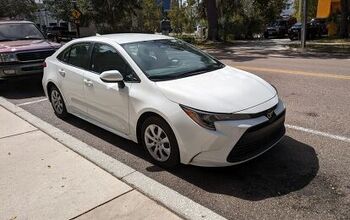Homeland Security Re-evaluating License-Plate Reader Database Plan
Over a year after Homeland Security passed on building a national license-plate reader database, the department is once again interested.
Autoblog reports DHS is this time seeking a commercial solution already on the market, instead of looking to contractors to build the database as the department once desired. Going the commercial route would help bolster its ability to fight crime while providing the path toward minimizing privacy concerns, with the current plan calling for LPR information to be stored for five years barring exceptions as needed pending supervisor approval.
On the other side, critics of the plan cite privacy and First Amendment concerns (the latter specifically about the right to peaceably assemble). Electronic Frontier Foundation senior staff attorney Jennifer Lynch says the department’s plan doesn’t do much to protect privacy in a meaningful way, while Center for Democracy and Technology senior counsel Gregory T. Nojeim warns that DHS would have “warrantless access to location information going back at least five years about virtually every adult driver in the U.S.” upon implementation.
Seattle-based writer, blogger, and photographer for many a publication. Born in Louisville. Raised in Kansas. Where I lay my head is home.
More by Cameron Aubernon


































Comments
Join the conversation
Our masters will feed, clothe and protect us.
I feel like I need to start removing my license plates every time I park in public.
Entrapment at it's finest!
Based on the recent Supreme Court decision regarding GPS tracking, I'm not sure how long programs like this will be legal. This amounts to nothing more than what used to be called a "dragnet": bring everybody down to the police station and start talking to them; maybe one of them will be the perp. As others have pointed out, this builds a data base that allows people to be tracked over time, based on the observation of the license plate, each instance of which includes time, date and location information.